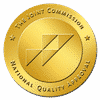EMDR Therapy in St. George Utah
Eye Movement Desensitization and Reprocessing (EMDR) Therapy is a psychotherapy technique that focuses on a person’s eye movements to help them recover from trauma. It is based on several branches of psychotherapy, including concepts of Cognitive Behavioral Therapy (CBT). These techniques are powerful enough to unblock emotional processes that have been impacted by distress.
When a person unblocks their emotions, they have the ability to reprogram their brain. When this occurs, they will be able to heal from the trauma and emotional distress they have experienced. EMDR also helps people gain a new perspective, fostering higher self-esteem and boosting one’s personal beliefs about their capabilities.
Continue reading to learn more about this fascinating and helpful technique.
Take that First Step
Take that First Step
What Exactly Happens in Eye Movement Desensitization and Reprocessing?
- Eye movements
- Audio stimulation
- Hand tapping
Is EMDR Right for Me?
Originally, EMDR was exclusively used to treat trauma, but it is now used to treat various mental health conditions. If it is used to treat panic disorder, a therapist may ask a patient to bring their attention to feared physical sensations or thoughts that are linked to their panic attacks. For instance, if someone is too afraid to drive their car, EMDR can help them remain calm to prevent panic attacks; this can help them feel safer when they are on the road, restoring their confidence.
This therapy technique is helpful for people who live with the following conditions:
- Anxiety
- Addictions
- Chronic pain
- Eating disorders
- Depression
- Panic disorder
- Panic attacks
- Post-traumatic stress disorder (PTSD)
- Phobias
- Self-esteem issues
One of the best parts about this technique is that it can be used on its own or in conjunction with other psychotherapy techniques, such as CBT.
The Stages of EMDR
Phase 1: History-Taking
Phase 2: Preparation
Phases 3 to 6: Assessment, Desensitization, Installation, and Body Scan
These phases are where the hard work is done:
First, you will choose one of the targets you identified in phase one, such as a painful memory.
Next, you will describe the visual picture in your head of said memory, as well as how it makes you feel emotionally and physically.
You will have to identify both a negative and positive belief about yourself as it relates to the mental picture of the memory.
Phase 7: Closure
Phase 8: Reevaluation
Steps Recovery Centers Cares
Multi-Channel Approach to Treatment
Lorem ipsum dolor sit amet, consectetur adipiscing elit. Non ut magna varius purus ut maecenas in. Cursus justo, ut tincidunt arcu neque adipiscing. Vestibulum a molestie nec quis molestie mollis. Viverra molestie est egestas scelerisque ullamcorper. Pulvinar in tristique tellus urna blandit egestas euismod euismod ullamcorper. Mi, ipsum congue fusce eget.
Dialectical Behavioral Therapy
Mindfulness in Addiction Recovery

Treatment Center
Residential treatment centers are knownfor their success rate, so it’s important to research local ones that fit yours or that of the needs of your loved one. Ensure they are acredited and licensed, have access to emergency care services, offer aftercare planning, and have a credentialed staff
 Nathan Frame2019-10-12Steps Recovery is the place you go if want a caring and understanding program. They have helped me gain knowledge about myself and what I want/need to do. The staff there can relate and help you through core issues and they push you to do better because being in this program you know you can do big and amazing things. Also the therapists there are awesome and walk with you through struggles of life and give you the tools you truly need. Overall this place is an amazing opportunity and you’d be missing out on a lot if you chose to not at least try this program. Definitely 5 stars
Nathan Frame2019-10-12Steps Recovery is the place you go if want a caring and understanding program. They have helped me gain knowledge about myself and what I want/need to do. The staff there can relate and help you through core issues and they push you to do better because being in this program you know you can do big and amazing things. Also the therapists there are awesome and walk with you through struggles of life and give you the tools you truly need. Overall this place is an amazing opportunity and you’d be missing out on a lot if you chose to not at least try this program. Definitely 5 stars Shaylesa Stulce2019-06-13Steps Recovery in St. George has been amazing! I’m so excited to use the tools that I’ve learned here! The staff is amazing, and very understanding! I would recommend them to anyone struggling with addiction!
Shaylesa Stulce2019-06-13Steps Recovery in St. George has been amazing! I’m so excited to use the tools that I’ve learned here! The staff is amazing, and very understanding! I would recommend them to anyone struggling with addiction! Gabe Peterson2019-06-13Extremely awesome staff. Shout out to Becky, Julie, Lacy, Tyler, Kami, Bill, Troy, Austin, Conner, Skyler. Its an incredible program
Gabe Peterson2019-06-13Extremely awesome staff. Shout out to Becky, Julie, Lacy, Tyler, Kami, Bill, Troy, Austin, Conner, Skyler. Its an incredible program Adam Kelly2019-06-04What I liked most about my time at Steps is the atmosphere that was presented during my whole stay. I have done a lot of treatment centers and this one is by far the one i have felt i gained the most from. I would highly recommend Steps to anybody struggling with addiction!
Adam Kelly2019-06-04What I liked most about my time at Steps is the atmosphere that was presented during my whole stay. I have done a lot of treatment centers and this one is by far the one i have felt i gained the most from. I would highly recommend Steps to anybody struggling with addiction!

The Steps Recovery Centers Guarantee
Steps Recovery Centers guarantee that any person who completes any of our programs are welcome to come to our weekly aftercare group for additional support at no charge for life.





